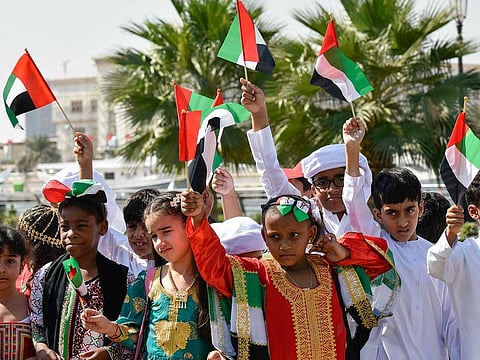UAE’s Principles of the 50: A doctrine, not a document
From peacemaking to economic diplomacy, guiding principles have become model for action

In recent years, Middle East experts have observed the UAE’s rise, not only as an economic powerhouse, but also as an important diplomatic actor able to engage all sides, conduct business across a wide spectrum, and maintain far-reaching peaceful relations. The UAE’s ability to lead extensive diplomatic efforts, helping to end the destructive war between Iran and Israel while also brokering a successful prisoner exchange between Russia and Ukraine, raises a legitimate question: What are the UAE’s objectives through these efforts?
After a decade marked by the so-called Arab Spring and the devastating COVID-19 pandemic, the UAE, as a Middle Eastern country, has faced major regional and international shifts, politically, economically, and in terms of security. These shifts came as the UAE marked its 50th anniversary, an ideal moment to recalibrate its policies and plans for the next five decades. In that spirit, the UAE’s political leadership was keen to ensure that planning for the future did not rely on statements or aspirations alone, but on a robust national strategic roadmap with clear milestones and objectives. This ensured that all of the UAE’s resources, at both federal and local levels, were aligned to achieve measurable outcomes. These efforts culminated in the announcement, on September 5, 2021, of the ‘Principles of the 50’. What is the core message underpinning these principles?
Key takeaway
The key takeaway is an emphasis on economic prosperity and human development within the UAE’s national strategy. After reaffirming the overarching priority of strengthening the union of the seven emirates within the first principle, the second principle clearly states: “The economic development of the country is the supreme national interest.” Part of the third principle adds: “The Emirates’ foreign policy is a tool that aims to serve our higher national goals, the most important of which is the Emirates’ economic interests.” The fifth principle also addresses foreign policy, stating that “relations with its neighbours are one of the most important priorities of the country’s foreign policy.”
The UAE leadership has sought to institutionalise these principles, translating them into plans and actions based on the understanding that these guiding principles require consistency and continuity to produce tangible results. In this context, the late Sheikh Khalifa bin Zayed Al Nahyan, former president of the UAE, issued a federal decree mandating that all ministries, federal and local authorities, and national institutions adopt and apply these principles in all directives and decisions, incorporating them into their strategies and work plans.
Strong relations
When these principles were first adopted, some outside observers questioned their feasibility, particularly given the complexity of Middle East power dynamics, where maintaining balanced relations with Iran, Turkey, and Israel is no easy task, and at a time when the UAE had normalised relations with Israel as it recalibrated ties with both Iran and Turkey. Even, at the international level, the UAE has managed to maintain strong relations with its traditional partner in Washington, while expanding its strategic interests with Russia, China, and other emerging economies.
The model the UAE introduces is fundamentally built on two pillars of international and regional stability: security and the economy. Driven by these core aspects, the UAE aims to leverage its relationships to de-escalate tensions and promote dialogue as an alternative to confrontation. Taken as a whole, the UAE’s policy trajectory since the adoption of the Principles of the 50 clearly demonstrates that this is not merely a document, but a national doctrine anchored in a deep and lasting commitment.
Abdulrahman Al Haddadi is a researcher at the Emirates Centre for Strategic Studies and Research (ECSSR) with experience in public and foreign policy research and analysis

